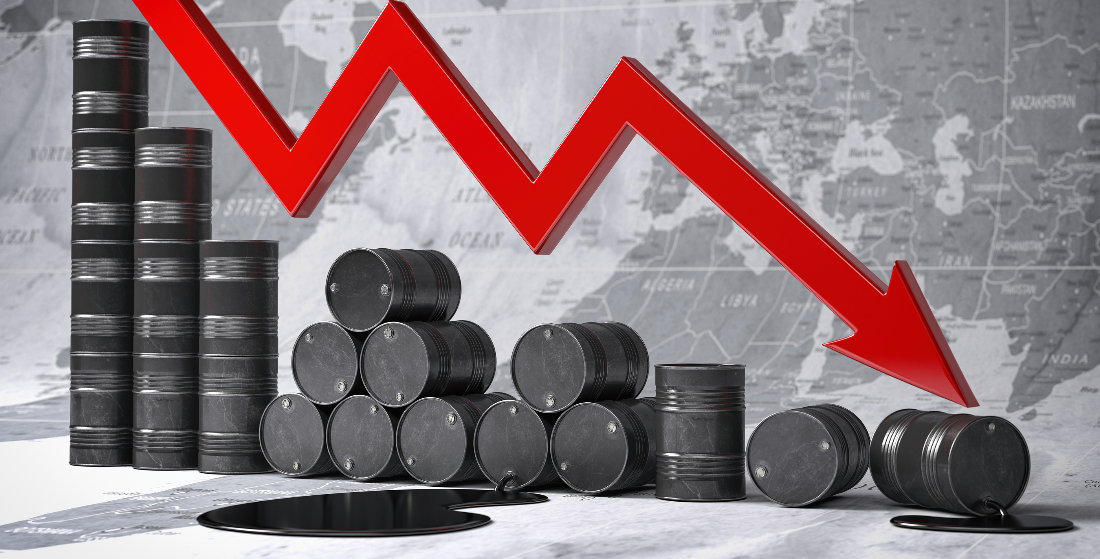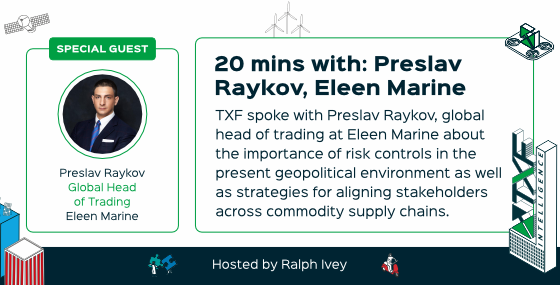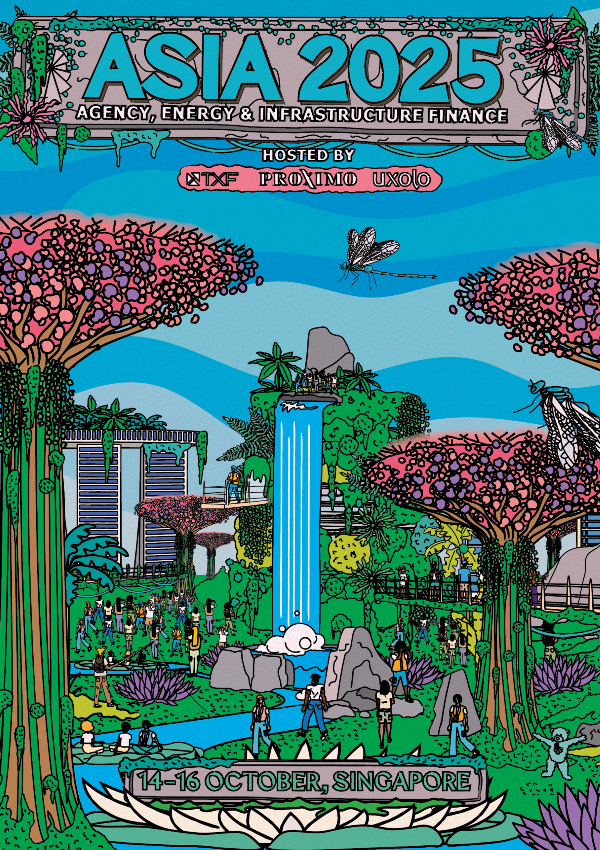Stuck in the great oil game!
The oversupply of crude oil coupled with the massive fall in demand due to Covid-19 has led historically low prices. What is the impact of this and who are the winners and losers? Jonathan Bell delves into the well to explore the scene.

Crude oil production is a dirty, sticky business – but someone has to do it! It is also a vital business – for industry and the global economy. At a time when the world is trying to move away from its hydrocarbons backbone to cleaner and more sustainable forms of energy we can still expect to be stuck with crude oil for many decades to come, whether we like it or not.
Now, many of you good folk out there may be saying that is a load of tosh as we only have to look at the current state of affairs and in particular the low price of oil to realise that we don’t need all that oil the world has been pumping. But, currently we are in an economic maelstrom that has been spiralling for the last few months downwards. Covid-19 and the associated lockdowns has had a huge impact on demand for crude and products from industry, airlines, shipping and petrol/gas consumers in particular.
Couple this with the fact that the real game of production and control of crude has been played out in its most intense form for the past few years as the US, Saudi Arabia and Russia have vied for various degrees of influence over levels of global production and consequently market price. Of course, Saudi, always known as the ‘swing producer’, holds the major card as we have seen in recent months. But it does need non-OPEC Russia on board too – hence the so-called OPEC+.
Overall, a combination of the impact of Covid-19 and the oil glut that we have seen of late gives us a perfect storm – and one that some have described as a ‘black swan’ event* – an event that has a major effect, and is often inappropriately rationalised after the fact with the benefit of hindsight.
History is everything
Looking at the chronology of events over the past couple of months one can really see where the bulk of the damage on the supply side has occurred. In recent years US and Canadian shale and tar sand oil producers have ramped up production – so much so that the US has become the leading producer worldwide. President Trump wants to keep petrol/gas prices low, but US shale oil producers cost of production is high at around $40 per barrel. So, with current prices many US producers have had to stop production or have filed for bankruptcy. There is a trail of devastation across this zone and it will have a profound impact on some of the more heavily indebted firms and their financiers.
Global oil consumption is normally around 100 million b/d, but with the impact of Covid-19 consumption is estimated to have dropped by at least a third of this. Oil supply has not matched this. Within the OPEC+ group which is led by Saudi and Russia, in early March Saudi asked Russia to cut back on production. When Russia refused a major row broke out with each actually further upping production – Russia with an extra 2.6m b/d, and Saudi more than that. At that time Russia was producing 11.3m b/d and Saudi 12.3m b/d. The market was further swamped. Storage facilities filled up, and most of the world’s tankers became full too. Oil prices fell to an 18-year low – with Brent at $22/b.
Russia and Saudi both openly stated that they could withstand low oil prices. This could be seen as was posturing and economic madness, but there is a genuine concern in many corners of these two producing nations that higher oil prices will simply help US shale producers. However, Russia is depleting its substantial sovereign fund because of low prices – and Saudi can be expected to do the same, while also being pushed into borrowing to meet some budgetary expenditure. Most analysts say that Russia is better placed than Russia in this ‘game’.
I guess it is no wonder that Trump has tweeted: “For many years I hated OPEC, because it was a fix! Then it went the other way. I want to protect US jobs.” Unfortunately, through this whole period many US jobs in the oil sector will have been lost.
Of course the US also imports considerable volumes of crude. And, it is known that there has been discussion on tariffs for foreign crude. In early April, Trump said: “Tariffs on foreign oil are a way of evening the score. Am I thinking about imposing it as of this moment? No, but if we are not treated fairly, it’s certainly a tool in the toolbox.”
Fast forward to 3 April and Trump tweeted that Saudi and Russia had done a deal to cut production by up to 10m b/d.But nothing had been released by Saudi or Russia on that. Guess what? The price of oil soared by 50% that day alone! Somebody somewhere will have made a killing! Just saying!
There will always be some winners in Wall Street and other markets by those who like a bet. I recall my days of hanging around OPEC meetings in Vienna where the slightest hints from ministers or snippet of production cuts or increases would be relayed by some to investors in Wall Street etc. Some say that this latest crisis has also created big opportunities for investors to buy stakes in big European oil firms.
It wasn’t until 9 April that OPEC+ announced that it was going to potentially cut oil production by 10m b/d. Venezuela, Iran and Libya are exempt from these cuts, and special arrangements were made with Mexico. At the time there were reports that some US senators were working on plans to remove US troops and hardware from Saudi soil if there weren’t oil production cuts from Saudi.
This announcement was followed up by G20 discussions the following day where the US, Canada, Norway and others also agreed to make cuts. The G20 also discussed measure to buy up crude to fill emergency stockpiles as well as cuts in new supplies. And the US administration has said that it will look to store an additional several hundred million barrels of crude as part of a ‘national security interest’ programme.
As expected Trump likes to take a lot of the credit here, and has tweeted: “I think I got them to cut 10m b/d, maybe even 15m b/d. Could be even 20m b/d.” Despite initial rallies, all this has not stopped oil plummeting further, with the added anomaly of some WTI going to negative pricing because of lack of storage. Much of the action taken has been too little too late. The real damage had already been done by the Saudi-Russia oil price war, and by producers not acting quickly enough to cut production because of Covid-19. The oil production cuts came into force on 1 May, and prices have largely stabilised for now. As I write this Brent is trading at around $30/b. Some analysts have suggested that Brent will trade at around $35/b over the next few months, but that is a very wide guestimate in the overall game.
Storage will remain a key issue however, and many of those with storage will have bought oil cheaply with a view to sell at a later date when they can make a decent profit. In April it was reported that Glencore had hired Europe the world’s largest tanker to store crude. Overall, it was estimated in mid-April that here was around a total of 250m barrels of crude oil and oil products being stored in non-traditional storage – tankers at sea. Vitol and Trafigura are other traders using tankers for storage. In early April even Trump stated: “There’s oil all over the oceans right now. That’s where they are storing oil; we have never seen anything like that. Every ship is now loaded to the gills.”
With the cost of crude oil today far below what the market is expected to pay in, say, six months, it’s what is known as a contango market. A trader can buy crude now, put it in storage, while simultaneously selling in the forward market, in effect locking in the price difference between the different dates. Providing the contango is wide enough to cover the cost of storage, finance and insurance, the transaction is profitable. Tanker owners and commodity trading companies are the winners in this part of the game.
Moving oil is a changed game as well. For those cargoes with a destination and guaranteed storage or refinery, many tankers are now taking the long way round from the Gulf – going round the Cape of Good Hope to Europe rather than through the Suez Canal. First it saves on massive canal transit fees, and second it takes much longer so the rationale is that price of product will improve. There have even been reports of some tankers from Norway routing round Cape Horn rather than transiting the Panama Canal for delivery of crude in west coast US.
Many of these issues will be discussed at length during the TXF Global Commodity Finance Virtual 2020 which runs as a virtual event from 26-28 May and as a physical event later in Geneva on the 5-6 November.
Further reading on the impact of the low oil price particularly with North American producers can be found in two excellent articles by writers in TXF’s sister company Proximo Infra; which largely focuses on project finance. My colleague Sean Keating wrote a blog three weeks ago entitled: ‘Buoys for the black stuff?’ which looked at liquidity, or the lack of it, in the oil sector: https://www.proximoinfra.com/articles/7897
While my colleague Thomas Hopkins wrote a feature article on 11 May for Proximo entitled: ‘How bad can it get’, largely looking at reserve based lending for North American producers: https://www.proximoinfra.com/articles/7901/Oil-and-gas-How-bad-can-it-get
Damage for African producers
One very important group of countries expected to lose out in all of this is the established and emerging African oil producers where low oil prices will have a massive detrimental impact on their, until now, fast-growing economies. It is a major problem for countries like Nigeria, Angola, Republic of Congo, Gabon and Cameroon for example, which have a huge dependency on crude oil exports for the bulk of the foreign exchange.
For nearly all of these countries, they have relied on the spot market for export sales, and as such they have not felt the need over the years to build up their own storage capacity. And, in a world of many suppliers you have to play the price game – and now they are finding that those sales come with a huge discount. As an example, in late April, shipments of Nigerian Bonny light crude were selling at a heavily discounted $12/b. Current costs of production in Nigeria is around $20/b. The other side of this is that Nigeria has to store in vessels at sea which it has to rent, and that can become expensive as shipowners see them as a captive market.
Unfortunately for Nigeria with its budget pegged almost solely on oil prices it is in a highly volatile situation. It has also failed to plug fiscal inefficiencies and tax loopholes, and it has no immediate way of making up the budgetary deficits it is looking at. In addition, over the years, Nigeria has not properly addressed the issue of economic diversification and away from oil. Nigeria’s last budget was worked out assuming oil revenues of $60/b. Consequently, the government is considering a 40% cut in budgetary expenditure. This is likely to hit the least well off the most with cutbacks to education, health, sanitation and infrastructure projects.
TXF recently held its Africa Virtual Conference and subsequently we produced a TXF Africa 2020 virtual Event Report where we surveyed peoples’ views on sector development. And in relation to the level of export finance activity within the oil and gas sector since the Covid-19 outbreak, 86% of respondents said they had seen less activity, and 14% about the same. For petrochemicals some 68% had seen less activity, with 32% about the same. Nobody reported increased activity.
And, when asked about anticipated changes in African export finance activity over the forthcoming 12 months, for oil and gas 67% said they expected less activity, 24% about the same, and only 10% more activity. For petrochemicals, 67% expected less activity, 35% about the same and 5% more.
One delegate responding on the survey commented: “There is a high risk that the oil producing countries will default on their debt. I would rather see a big package of re-negotiation in these countries, but also including other countries that might not be able to repay their debt. This is a huge risk, and it’s why we are talking about increased country risk across Africa, especially in the oil-based economies.” Worrying times ahead indeed!
*The black swan theory or theory of black swan events is a metaphor that describes an event that comes as a surprise, has a major effect, and is often inappropriately rationalised after the fact with the benefit of hindsight. The term is based on an ancient saying that presumed black swans did not exist – a saying that became reinterpreted to teach a different lesson after black swans were discovered in the wild.
Register for our free TXF webinars
Live webinar: How can institutional investors support trade finance flows?
Thursday 14th May 2020 | 10:30 EST | 14:30 UTC | 15:30 BST It is more essential than ever for the trade and export finance community to engage with institutional investors to optimise their ability to access capital. Join our live 1 hour webinar as experts discuss what a long term issuer/investor relationship can look like in trade finance.
Live Webinar: Filling the $1.5tn trade finance gap: How much can technology bridge?
Wednesday 20 May | 11am BST | 12pm CET How much is digitisation going to help narrow the gap between what trade finance is needed and what is under offer?
Live webinar: Recovering defaulted credit insured trade receivables and export credits in MENA
Thursday 21 May | 11:00 BST | 14:00 GST When obligors in remote countries miss payments, speed and local knowledge are essential in recovering defaulted funds. In this webinar we will explore the avenues available for amicable, arbitrated and judicial recovery for export credit insured transactions in MENA.
Now time to get up to speed on the markets.
Here's our exclusive TXF in depth articles
Can DFIs stretch to combating Covid-19 and climate change?
Development banks have been at the forefront of dealing with climate change. Now they’re in the front line of the Covid-19 response. Will the development finance community’s ambitious sustainability agenda have to take a back seat to mitigating the impact of the virus?
TXF Africa Virtual post event report
On 27-30 April, TXF Africa 2020 Virtual welcomed 750 African export and project finance deal stakeholders to a landmark virtual event. The detailed 23 page report gives you a snapshot of what we covered.
Exclusive TXF Tracker and Originals content
VAPCO out to banks for coal-fired plant loan
Sponsors of the 1.32GW Vung Ang 2 ultra-supercritical coal-fired power project in Vietnam – Japanese trading house Mitsubishi Corporation, Korea Electric Power Company (KEPCO) and Chugoku Electric Power – are sounding out banks and ECAs to fund the scheme.
More details emerge on Glencore’s annual RCF
In late March, Glencore announced its largest one-year RCF had been refinanced and extended, with effective from 22 May 2020. A source close to the deal has clarified that the scaling back of this financing was not due to an increased cost of debt.
Summit Gazipur II oil-fired plant closes financing
On 22 April, Summit Gazipur II – wholly owned by Singapore-headquartered Summit Power International – reach financial close on a $140 million refinancing debt package backing the 300MW heavy oil-fired Summit Gazipur II project in Bangladesh.
MIGA ups Ghoubet wind farm cover
Sponsors of the $123.5 million 60MW Ghoubet wind farm in Djibouti – Africa Finance Corporation (AFC) 51%, Climate Fund Managers (CFM) 19.5%, FMO 19.5% and state-owned Great Horn Investment Holdings (GHIH) 10% – have tapped an additional guarantee from MIGA to back the scheme.
Puma Energy secures RCF
Singapore headquartered Puma Energy closed a one-year $310.5 million RCF in late April. Proceeds will be used to refinance its existing one-year $350 million RCF, closed last April.





